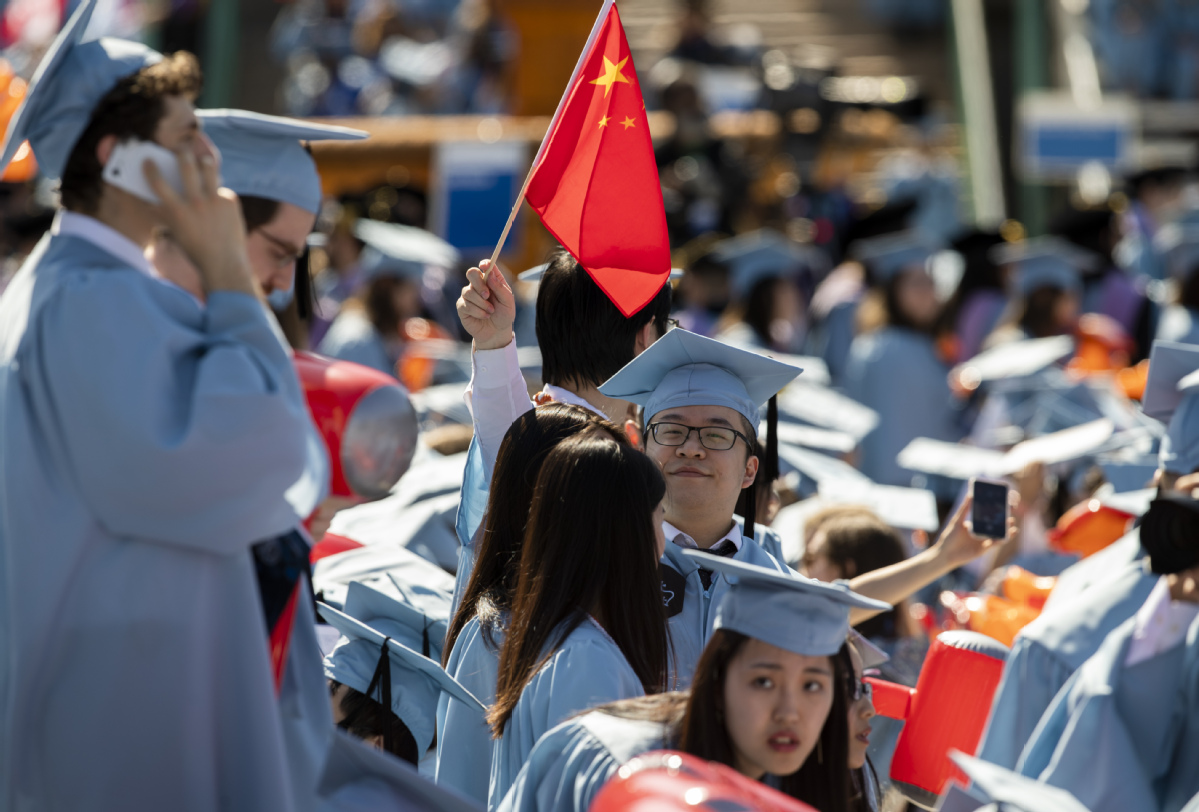STEM students prepare legal action after US government denied visas
By ZOU SHUO | CHINA DAILY | Updated: 2021-07-14 06:46

Chinese students who have been denied visas to pursue advanced science degrees at universities in the United States are preparing to file a lawsuit against the US government.
The students have set up a website and plan to raise $750,000 to $1 million before filing the lawsuit, one of the initiators, who requested anonymity, told China Daily.
"We have talked with several US lawyers and had two meetings with renowned American civil rights and immigration lawyer Ira Kurzban," the initiator said. "We are prepared to fight for the long haul."
According to the initiator, the students are mainly from eight leading science universities in China, which the US has claimed have links to the Chinese military. They include Harbin Engineering University, Harbin Institute of Technology, Beihang University and Beijing Institute of Technology.
In May last year, former US president Donald Trump issued Presidential Proclamation 10043, which bans Chinese postgraduate students and researchers from studying or working in the US if Washington deems they have had affiliation with China's "military-civil fusion strategy".
"Today, the restrictions are imposed on students from eight schools. Who can guarantee that the ban will not be extended?" a poster made by the students said. "The ban affects students majoring in science, technology, engineering and mathematics. Who can guarantee that it won't apply to all Chinese students who want to study abroad some day? Today's silence is the beginning of allowing unwarranted discrimination."
Around 2,000 Chinese students said they have faced visa restrictions, according to the initiator. Some are majors in literature and others are graduate students and visiting scholars sponsored by the China Scholarship Council, the initiator said. "Going abroad to study is not an easy decision-it requires years of preparation and financial investment. Many of us are saddened, angry and even depressed by the news," the initiator said.
An open letter written by more than 500 Chinese students who have complained about their US visa applications being rejected has received a strong response from the public on Chinese social media platforms.
Foreign Ministry spokesman Zhao Lijian said at a recent news conference that the visa restrictions are a continuation of a "poisonous legacy" from the Trump administration.
At a separate news conference, Wang Wenbin, another ministry spokesman, quoted analysis by a Georgetown University think tank that showed Chinese STEM students were disproportionately affected by the proclamation. The analysis showed that so far, 3,000 to 5,000 Chinese students may have been affected by the proclamation, representing between 16 percent and 27 percent of the 19,000 Chinese graduate students who enroll in STEM disciplines in the US each year.
One student, who is a physics doctoral candidate at a US university and graduated from one of the eight Chinese universities, said getting a valid visa has distracted her from her studies.
"Endless worries about getting a valid visa haunted me when I was heavily burdened by academic tasks," wrote the student on the fundraising website. "I also suffered many nights of constant anger, sadness and anxiety."
China is the largest source of international students in the US.There were more than 372,000 Chinese students in the US during the 2019-20 academic year, accounting for one-third of the 1 million-plus international students in the country, according to the Open Doors report, an annual survey produced by the Institute of International Education of foreign students and scholars in the US.
The Ministry of Education warned Chinese nationals in 2019 about the risks of pursuing studies in the US due to visa restrictions.
According to a report by Vision Overseas Consulting in May, the United Kingdom remained the most popular destination for Chinese students pursuing overseas study for a second consecutive year, with the US again in second place.
The UK was chosen by 44 percent of respondents while the US was preferred by 32 percent, according to the report.
























